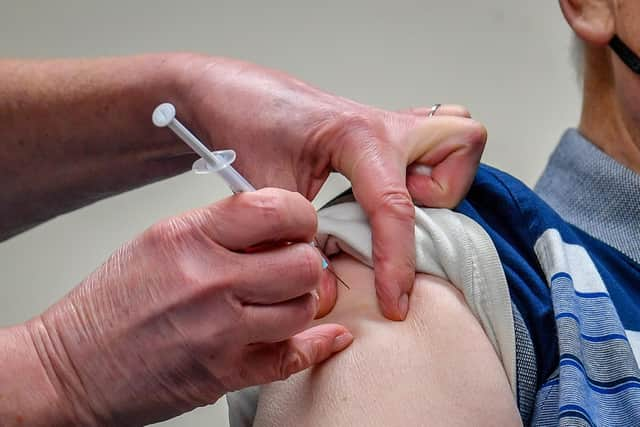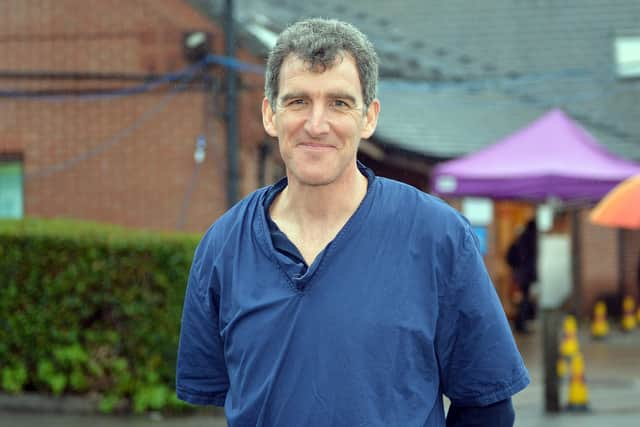'You're as likely to get killed by a meteorite as AstraZeneca vaccine', says Sheffield GP
and live on Freeview channel 276
City GP Ollie Hart was speaking after the UK’s Medicines and Healthcare products Regulatory Agency (MHRA) issued fresh advice that alternative vaccines were to be used for the under 30s where possible.
The move comes after a number of cases of rare blood clots (CVST) were discovered in patients who had received the vaccine, although has not yet been proved that these clots were as a result of the jab.


Advertisement
Hide AdAdvertisement
Hide AdDr Hart said that while it was good to be ‘vigilant’, it was also important to put any potential risk into context.
He said: “It’s great our teams are capturing side effects but the risk is very low - just 30 cases out of 16 million doses. This is a similar risk to your chances of being killed by a meteorite!
"We are still encouraging people to have their second doses of the AstraZeneca vaccine and have a clinic booked for tomorrow."
And Dr Andrew Lee, reader in public health at the University of Sheffield, compared the vaccine’s potential risk to other widely-used medications, including the contraceptive pill.


Advertisement
Hide AdAdvertisement
Hide AdHe said the risk of blood clots for women taking oral contraception was around 300-500 cases per million women on it each year, compared with 2-3 per million following the AstraZeneca vaccine.
He said: "We have had more than 4 million people infected and nearly 127,000 deaths. If all those people were immunised with this vaccine, we would have had around 20 cases of CVST, but saved over 100,000 lives.
"You are also 11 times more likely to die in a car accident each year than get a CVST after vaccination, and the likelihood of being struck by lightning in a lifetime is 6 times higher.
"1 in 10 of us have an allergy to antibiotics, and there are deaths each year as a result, but that does not stop us using them as they have an important role.


Advertisement
Hide AdAdvertisement
Hide Ad"The same applies to vaccines and it is important to remember there is no such thing as zero risk.”